By Emily Ball
Having wanted to teach social circus in central america for a very long time,ever since i was first interested in circus in fact, I am over the moon to be in Nicaragua with PWB, my favorite charity, doing exactly that! After leading the project last year in India I was ready for a new challenge and this particular one i had been looking forward to for some time. So what is it like….?
Well, apart from being hot and dusty, it is nothing like India! The national cuisine is rice and beans, accompanied by a choice of chicken, pork, beef, eggs, plantain, fried cheese and tortillas and a spicy salsa or two. The national language is spanish, although with a different accent and some unique words that are very different to european spanish. And teaching circus? Well, some things are the same the world over, although teaching in spanish is proving to be a bit of a challenge. English is not taught as much here as it is in India, so we are teaching in basic – but ever improving – spanish and mime – perfect for circus and theatre skills!
On a personal note i am finding it is great to be able to speak more than just a few words of the national language (unlike India where fluent hindi is quite the challenge) and I have had great fun being able to talk more freely with cafe owners, market traders and people on the bus, and it has made me very happy to have been understood first time when asking for old inner tubes to make staff grips with, or tube and tape for hula hoops…I still got curious looks, but i could explain what i was up to at least! Circus is well known in latin amercia and has a strong tradition, although it has experienced the same decline that circus in the uk and europe did. Hence, the general population has a good understanding of circus and what it involves but people are still very surprised and amused to see someone – especially a foreigner – unicycling down the street, or carrying hula hoops around.
We arrived here in Leon a couple of weeks ago, and performed for the children of El Barrilete, with whom we’re working with this month. The children from this organisation range in age from 4 to 18 and have varied and often difficult backgrounds. Most are involved with the charity for extra curricular help and general welfare support. A couple of the children can already juggle a little and even own a unicycle, down to the ingenuity and enthusiasm of one student in particular. We spent the first week introducing the variety of skills we will be teaching over the month, and were soon reminded of those things that are the same the world over – children’s love of diabolo and hula hoop for example, the 5 year old’s love of collecting juggling balls into a pile and the teenagers seemingly casual indifference to most things, especially when you are watching them! As time’s went on the children have got more and more involved in the games and warm ups and we’ve begun to notice the different characters and friendships. Every day the team are greeted more warmly by the students, names are starting to stick in heads, and games are played with increasing enthusiasm and understanding.
Our journey to school has gotten smoother, after trying to work out where the various buses and camionetas (covered pick up trucks with seats in the back) pick up from (anywhere, no-one agrees on one place but now we have a favorite corner to wait on) and wondering at the routes they take (never in straight lines, normally the long way round plus the centre of leon is ALL one way streets), we have some understanding of the way travel works here. The looks we get as 8 foreigners try to cram themselves, a unicycle, a bunch of hoops and a bundle of staffs into the back of an already ‘full’ (a relative concept here as in India) camioneta – whilst some of us try to remember a new spanish phrase to teach with or look up a new word in the dictionary – are amused and curious, what a sight we must be!
As we prepare to start into our 3rd week here, I am excited to see how the children progress, they have already learnt so much and favorite skills are clearly emerging. My spanish continues to improve, aided by the more outgoing students who correct pronunciation and help with new words, and we all are starting to remember names and faces. The camioneta drivers wave to us, and the staff of our local ‘comedors’ (cheap eateries serving local cuisine) welcome us with smiles. The local market is fantastic and a few of us have favorite stalls we visit for fruit and veg, slowly learning the names of the things we want to buy. We have also made contact with a couple of other local organisations and performed two shows, one in a outreach project similar to El Barrillete, and one in a school for differently abled students, both received with much laughter, smiles and applause…so i can’t wait to see what else we get up to whilst we’re here!

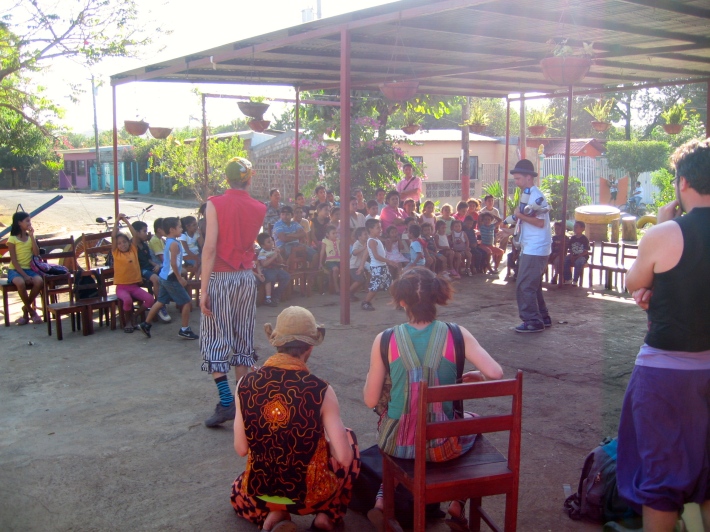
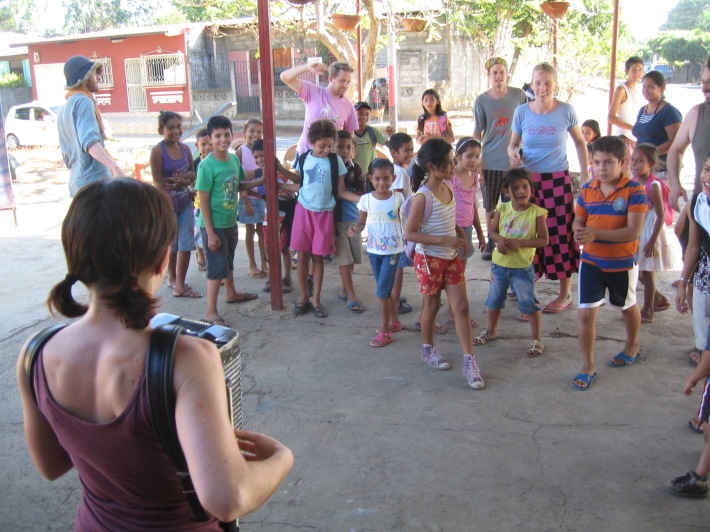
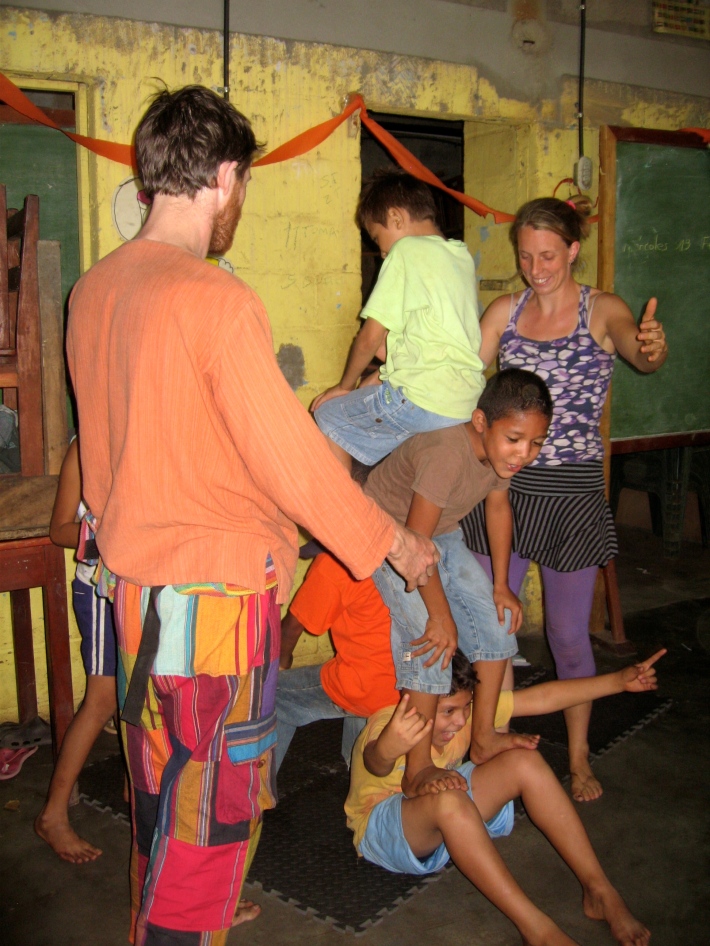
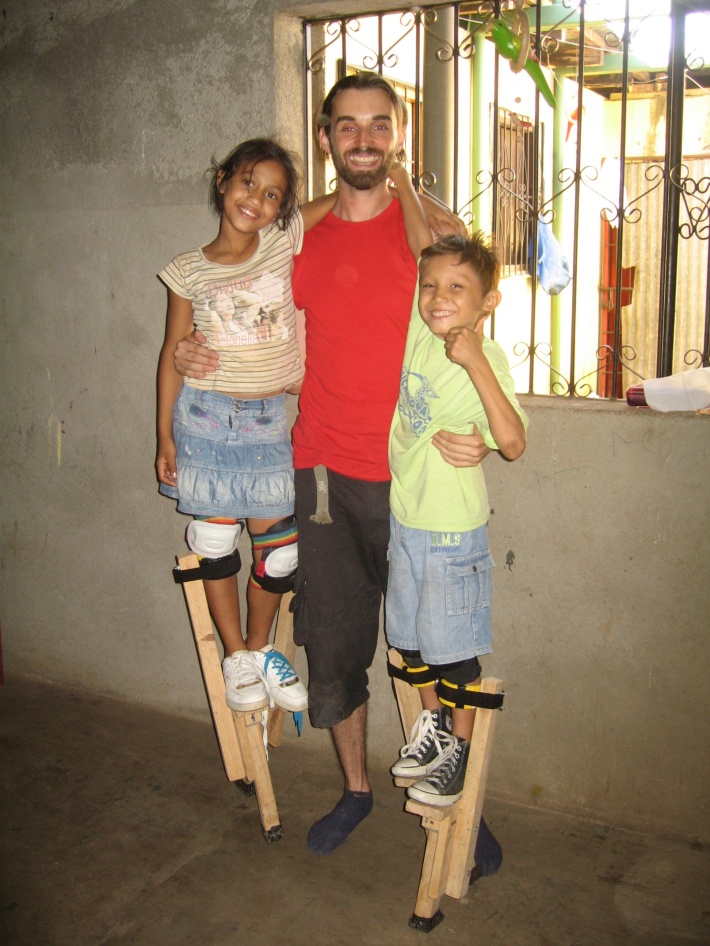
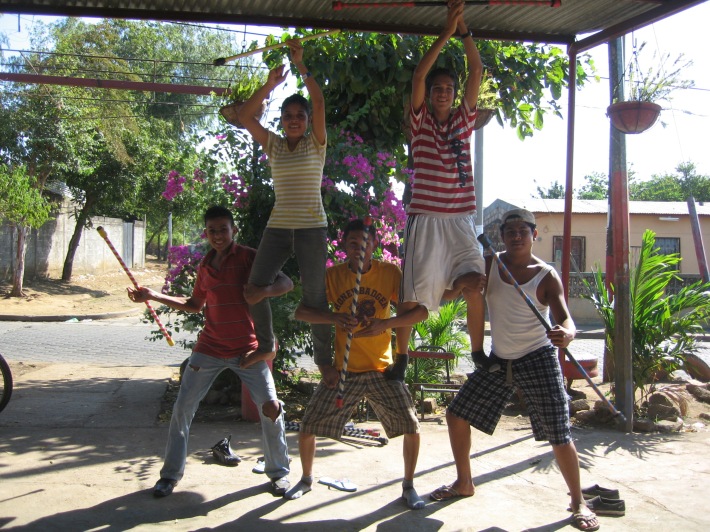
Add the first comment?
Post a comment?
Kate saunders
Great to read your account Emily, and lovely to see the kids at el barilete enjoying themselves so much. Leon is brilliant, isn,t it? Have you been to la olla quemada on a Wednesday night to listen to karola singing?